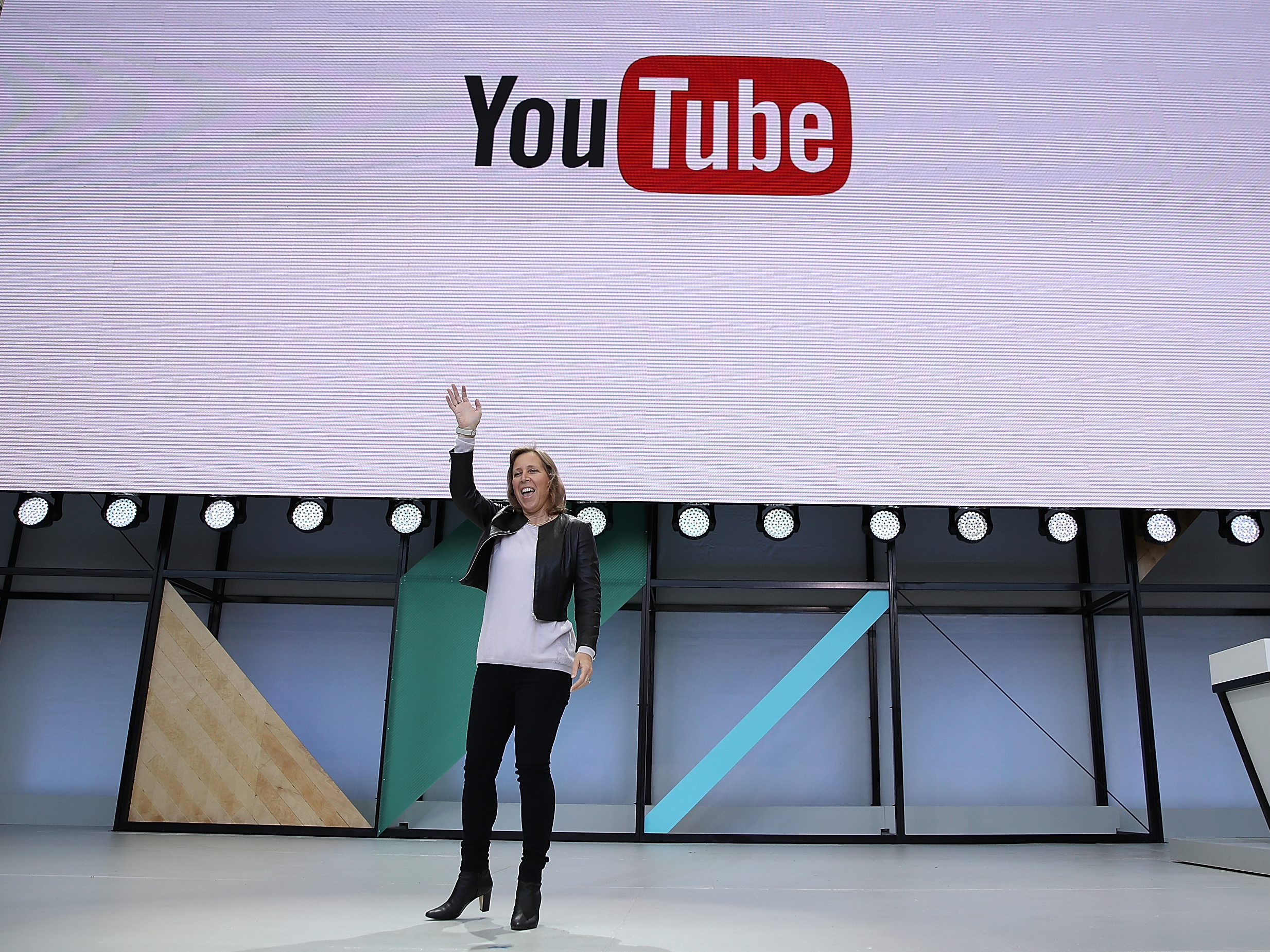- Google’s 16th employee and current YouTube CEO Susan Wojcicki played a huge role in solidifying the Google-YouTube relationship back in 2006.
- Wojcicki saw how user-generated videos could spark emotions after launching Google Videos, Google’s own free video-sharing website, and hearing her kids’ reactions.
- YouTube quickly took over a significant portion of the market but it needed a buyer, and Wojcicki took it upon herself to break down the figures to prove it was worth Google paying the $1.65 billion price tag.
Almost a decade before Susan Wojcicki became YouTube’s second CEO, she was sitting in a Google board meeting answering questions from decision makers about why the video-sharing platform was worth over a billion dollars.
Her conviction started in 2005, about a month before YouTube launched. Google’s free video-sharing website Google Videos just went up and Wojcicki, Google’s 16th employee and first marketing manager, uploaded the first video for users: “a purple Muppet singing a nonsense song,” she recalled in John Doerr’s “Measure What Matters.”
“Sergey [Brin] and I weren’t sure what to make of it,” she said. “But then my kids shouted, ‘Play it again!’ The light bulb went on.”
Her kids’ reactions made clear the power of user-generated content “for global distribution” and its ability to spark emotions that could lead to repeat visitors. YouTube’s user-generated videos consistently did better than any of the professional ones in the months that followed, after all.
But user-uploaded content wasn't immediately available to visitors on Google Videos the way they were on YouTube, and by the time Google fixed that design flaw, YouTube had a significant chunk of the market share. What it didn't have was the resources to address its demand.
"I saw an opportunity to combine the two services," Wojcicki said, realizing the company would need to sell.
"I worked up some spreadsheets to justify the $1.65 billion purchase price ... and convinced Larry [Page] and Sergey."
The founders called Wojcicki into the board meeting where the acquisition was being discussed. It was a last-minute summoning, but she fielded "lots of questions." And even though the board members thought her user growth figures were ambitious, she eventually got Google the green light to purchase YouTube.
A decade later, YouTube hit a billion hours of watch time per day, and in 2018 Morgan Stanley valued YouTube at $160 billion - almost 100 times Google's initial investment.

